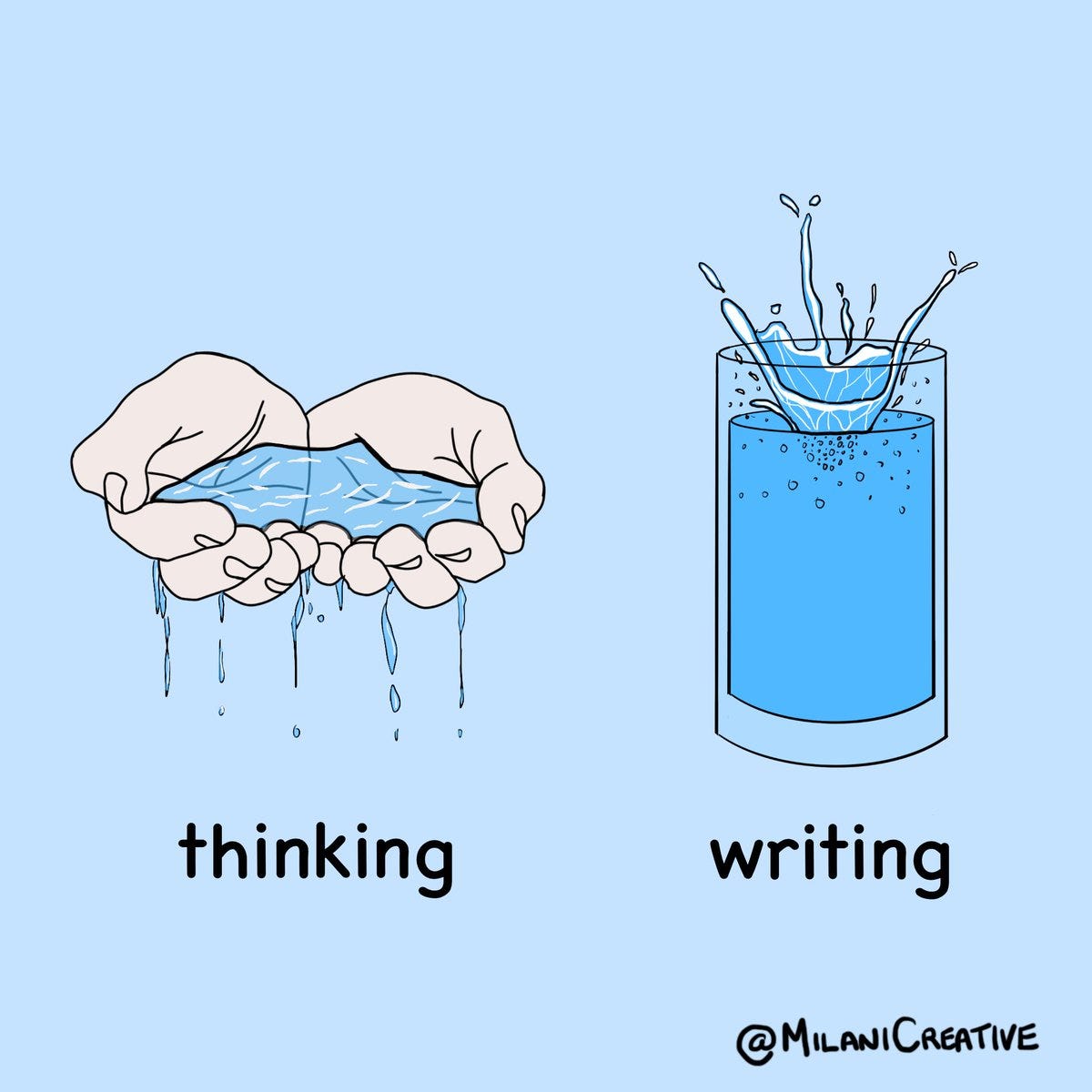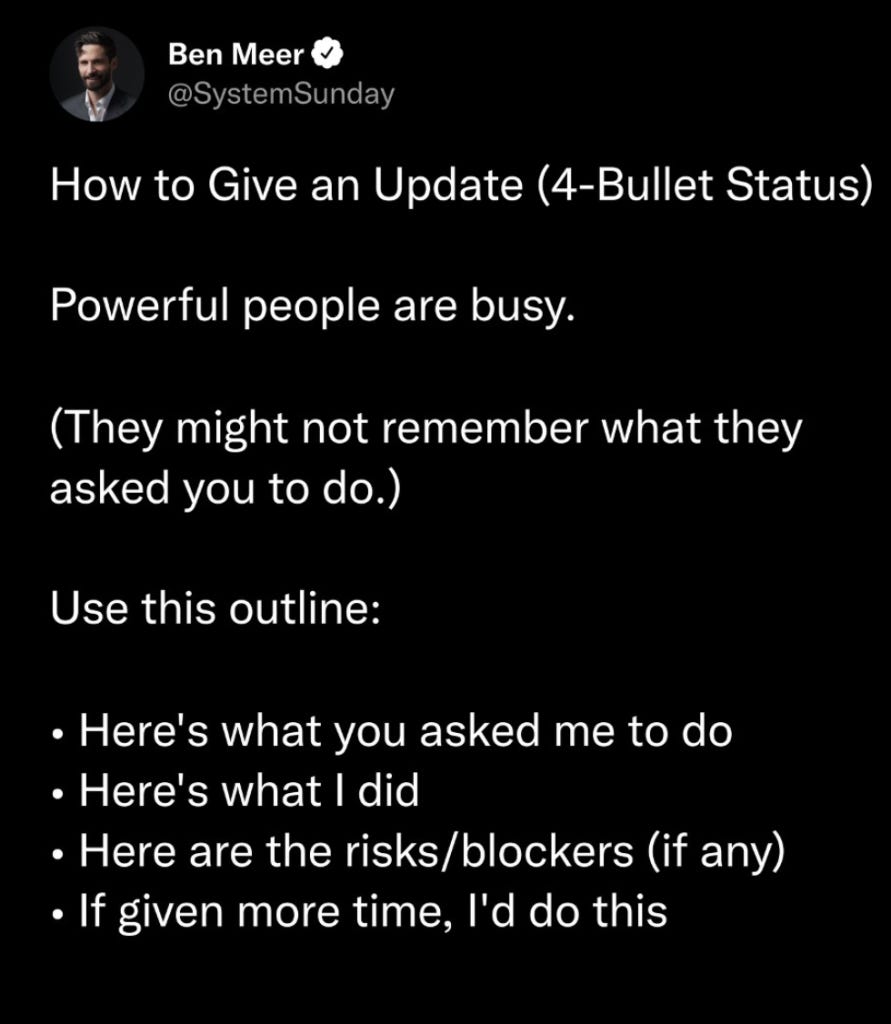10 Soft Skills to Accelerate Your Career 💼
Issue #22 : Top Skills of Top Performers and A-Players in Tech Companies.
I'm sure many of you can relate to these common frustrations:
"I'm genuinely trying to perform well, contribute, succeed, and grow with my company, but my boss still isn’t satisfied."
"Despite all my hard work, I don't feel sufficiently appreciated."
"I do everything my boss asks, strive to keep everyone happy, and deliver my work on time and with quality. Yet, I don’t feel fairly rewarded for my efforts."
The issue often isn’t your effort or intentions—it’s about alignment.
Today, I want to share ten soft skills that can significantly boost your career growth, potentially leading to promotions and raises. Unfortunately, these aren’t skills you’ll learn in school, so you might want to take notes.
Over the last 14 years as the CEO and co-founder of my company, I've had the privilege to work with ~500 professionals in different roles and levels of the organization.
Some of these professionals are A players (not all). The A players have unique skills that they consistently demonstrate. I believe these soft skills and consistency help them succeed in their careers and roles.
Here's how these skills can benefit you in your professional life:
Be a part of the "A players" creed in your company.
Help you get promoted faster.
Get more challenging and exciting projects.
Will have better job stability and security.
Start applying these ten soft skills today and set the stage for a thriving career.
#1 Passionate Problem Solver
A-players are awesome at solving problems. They don’t waste time complaining about issues; instead, they really shine when things get chaotic. Every business is out there to solve some problem—no company is without its challenges. Get comfortable with the chaos and dive into solving the exciting problems at your company.
Become a go-to problem solver, and you’ll really thrive in your role.
Here are some ideas to improve this skill:
If any part of the culture or process that you are frustrated with, find and suggest a solution to HR or your reporting manager (or even to the CEO).
This book is packed with great tips on problem-solving: Clear Thinking by Shane Perris.
Read my mental models on problem-solving: Thermostat vs. Thermometer.
#2 Obsessed with Productivity
Just as a country's growth is measured by its GDP and productive output, a company's success hinges on its productivity. A-players prioritize personal productivity above all.
By developing processes and systems that save time, enhance quality, and reduce costs for both your clients and your company, you're making a significant impact.
Aim to improve by 1% every day—these small increments can lead to substantial gains over time.
Here are some ideas to improve this skill:
Make sure you use all (+80%) of the features of your daily tools. Most people are aware of only 20% of the features.
Use my productivity framework: Eliminate → Simplify → Automate → Delegate.
Learn something new every day about productivity: Subscribe to my newsletter and YouTube channels on productivity.
#3 Excellent Writer
A huge part of our daily work and communication is in the form of writing: email, documents, chats, updates, etc. Writing is even more critical and important if you work with global, distributed, and remote teams.
73.4% of employers look for writing as a top skill in the workplace.
You might have heard companies like Amazon and Automattic prioritize written communication over all other types of communication.
Build a daily writing practice: start a blog, write on social media, and be designated note-takers in all your meetings.
Learn to be a good and clear writer.

Here are some ideas to improve this skill:
Read this book, On Writing Well: The Classic Guide to Writing Nonfiction by William Zinsser is the bible on improving writing skills.
Listen to this podcast, How I Write, which is excellent for learning from great writers and authors.
Read my guide on ChatGPT (or any AI tools) to improve your writing skills.
#4 Align Well with Company Culture
Most of the time, people get fired (or quit) from their jobs—not because they lack the right skills or talent, but because they fail to fit in with the company's culture.
What counts as success, good performance, or appropriate behavior can vary significantly from one company to another. It's very important to understand your company's "house rules."
For example, it's considered disrespectful to enter a temple or mosque with shoes on, but the same doesn't apply in many churches.
Make sure you're familiar with and aligned to your company's vision and goals.
Here are some ideas to improve this skill:
Read The First 90 Days; this book provides a solid framework for aligning your efforts with the goals of your company.
Request your HR for the recordings of past presentations by the CEO on the company’s goals, visions, and culture.
Have 1:1 chats with at least five employees who have been with the company for 5+ years. Ask them for their insights on how to succeed in this company.
#5 Balance High Performance with Self-Care
It might come as a surprise, but A-players aren't just relentless hustlers; they're also disciplined in practicing self-care.
Remember, your health and happiness are key to boosting your performance. If you're not in good shape, both physically and mentally, it doesn't matter how talented or hardworking you are; you won’t be able to play at your best, much less stay in the game.
Elite performers, A-players, and high achievers not only train hard and practice diligently but also make sure to prioritize rest and self-care.
Here are some tips to enhance this skill:
Try these 10 productive breaks to rest and recharge.
Build a daily routine (if possible, morning routine) to take care of your physical and emotional health.
The 5 AM Club by Robin Sharma is a great book for learning how to perform and rest like a champion.
#6 Thrive as a Creator + Contributor
You may be familiar with the advice to be a "Good Leader and Team Player," but I believe this doesn't quite capture what's needed in the modern workplace.
Regardless of your role, experience, or job title, there are two key ways you can make an impact in your company:
Creator: You proactively suggest new ideas and strategies for company growth. You take the initiative in solving problems, making decisions, and proposing solutions without waiting for instructions from your boss.
Contributor: You excel at executing assigned tasks and goals. You work well with team members and support others in achieving their goals.
Often, those who aren't considered A-players or high-performers struggle with balancing these two roles. They might excel as "Creators" but falter as contributors, developing large egos in the process. Conversely, they may be comfortable as "Contributors" but hesitate to step into a "Creator" role.
Here are some tips to improve your performance in both areas:
If you naturally lean towards being a "Contributor," allocate one hour each day or week to explore your "Creator Mode."
When you identify a problem that your CEO or company is facing, brainstorm and suggest possible solutions.
Enhance your understanding of business management by reading relevant books, studying your company’s competitors, and listening to the podcasts your CEO enjoys. This will equip you with fresh ideas and strategies to help achieve company goals.
#7 Show Soft Strength
A-players are comfortable delivering difficult messages, navigating disagreements, and presenting alternative perspectives without coming across as arrogant.
The concept I'd like to introduce here is "Soft Strength." Depending on your personality, demonstrating assertiveness and courage might feel daunting. However, "Soft Strength" isn’t about being harsh or domineering. In fact, many successful leaders in major tech companies, like Tim Cook and Sundar Pichai, are introverts renowned for their gentle yet effective leadership styles.
Here are some ways to show soft strength in your workplace:
Stand Up for What’s Right: Advocate for the right causes and decisions within your company.
Own Your Mistakes: Acknowledge when you’re wrong and learn from these instances.
Take Responsibility: Hold yourself accountable for the outcomes of your actions.
Speak Up: Voice your concerns or ideas when they impact you, your team, or your company’s goals.
Share Your Views: Don’t hesitate to present different opinions during team meetings.
CEOs of successful companies value honest feedback and diverse perspectives. Demonstrating these small yet significant acts of courage shows your readiness to lead.
#8 Deliver 110%, not 100%
Let me clarify something: I'm not pushing for working harder or longer hours.
It's not about the effort; it's about the results.
Think about it like this: an extra serving of panipuri, a bit more frosting on the cake, or a cherry on top—these are all ways to delight someone by going just 10% beyond expectations.
Everyone—your customers, colleagues, and boss—loves it when they get a little bit more than what they were expecting.
Simply doing what you're told shows you can handle your role, but it might keep you in your current position. But when you start taking on more responsibility and delivering that extra 10%, you show that you're capable of handling big roles (aka promotion).
Here are more examples of delivering 110% in your role:
(100%) Share project/task update. → (110%) Share project/task update + loom video explaining few critical points.
(100%) Complete the project on time as per SOW. → (110%) Complete the project on time as per SOW + Generate and submit the sitemap to Google Search Console.
(100%) Share website design. → (110%) Share website design + social media banner designs.
#9 Communicate Clearly
Executives receive over 1,000 messages a day. When we fail to communicate clearly and accurately, it can lead to frustration and missteps. Prioritizing clear, simple, and direct communication over clever, creative, or complex messages is essential.
Be clear when you are: asking questions, sharing thoughts or opinions, providing progress updates, and communicating daily with your clients, team members, and boss.
Here are some tips to help you become a clearer communicator:
Avoid abbreviations and use full terms → Example: CR (Change Requests)
Always convert meeting times to your client's timezone → Example: "We will meet on Thursday at 5 am Eastern Time."
When coordinating with clients or team members in different time zones, avoid saying "tomorrow," as it can be confusing. Use the specific day and date instead. → Example: "Are you available on Thursday the 10th for the meeting?"
Use a consistent format when providing updates on tasks. → Here’s a template you might consider
#10 Life Long Learner
Great leaders and the best performers are obsessive learners.
Unfortunately, many people tend to slow down or even stop learning once they start working. Yet, the tools, technologies, infrastructure, environment, culture, workflow, and people in the workplace are always evolving. If we fail to adapt and learn, expecting promotions or raises becomes unreasonable.
In my company, I've observed that all my A-players share a passion for becoming the best versions of themselves. They engage in various learning activities, including:
Reading books related to productivity, creativity, and personal and professional development.
Attending events and conferences to acquire new skills.
Exploring new tools and finding innovative ways to utilize existing ones.
Listening to podcasts on topics like sales, marketing, writing, communication, and coding.
Enrolling in online courses to broaden their skill sets.
Following blogs and newsletters that focus on personal growth and professional advancement.
Those who underperform often cite reasons such as:
"I don't have time to learn."
"I don't need to learn because I already know everything."
"I can only learn if the company sponsors my time and expenses."
Summary:
These ten skills will not only prepare you for better job opportunities but also make your work life more enjoyable and successful.
Passionate Problem Solver: Quickly find solutions to challenges at work.
Obsessed with Productivity: Make your work faster and better every day.
Excellent Writer: Communicate clearly through your writing.
Align Well with Company Culture: Understand and fit into your company’s rules and goals.
Balance High Performance with Self-Care: Work hard but also take time to rest and recharge.
Thrive as a Creator + Contributor: Help your team and come up with new ideas.
Show Soft Strength: Lead with kindness and assertiveness.
Deliver 110%, not
100%: Always give a little more than asked.Communicate Clearly: Speak and write clearly to avoid misunderstandings.
Life Long Learner: Keep learning to stay up-to-date and improve your skills.
Anil Gupta — CEO & Co-Founder Multidots
Keep Learning + Growing 🪴





